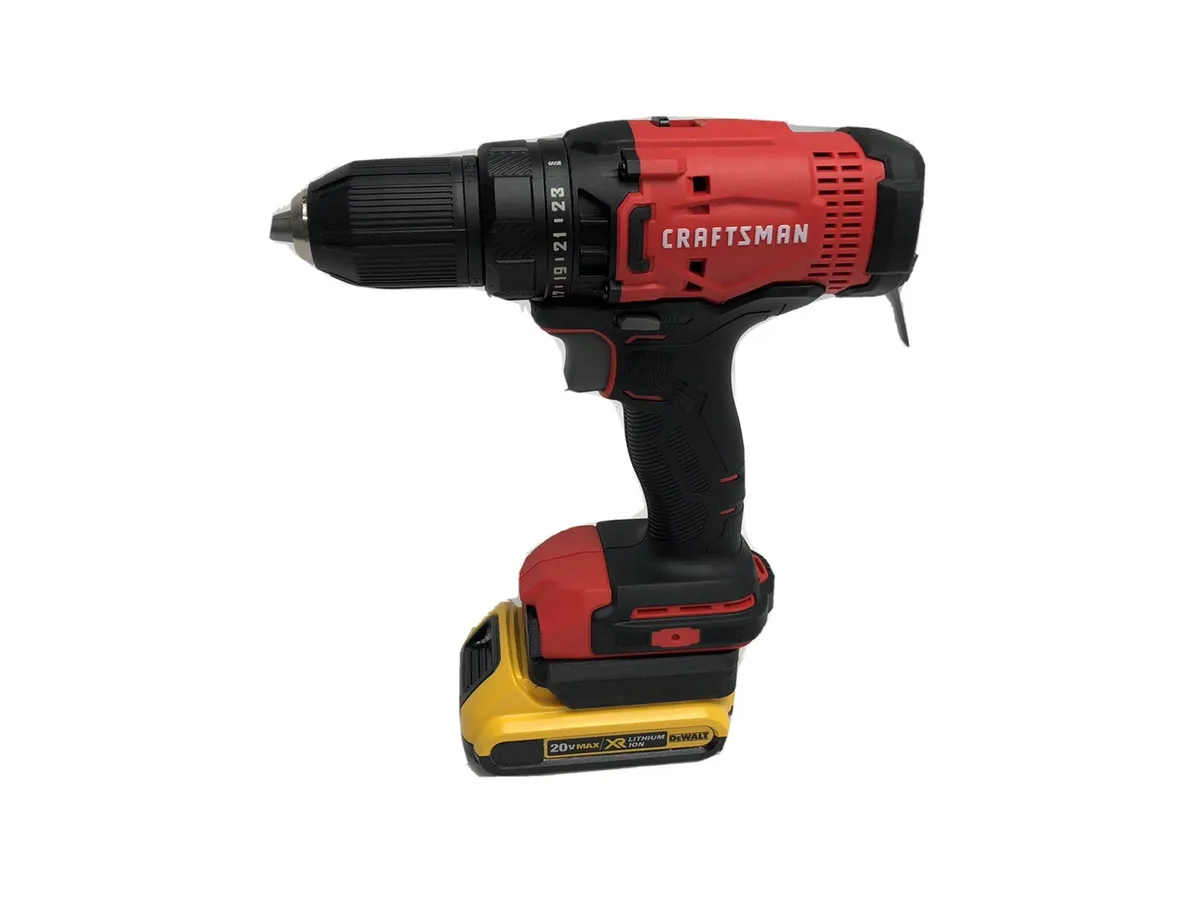
Hercules Power Tools: Brand Overview and Reputation
Hercules power tools have become a familiar sight for do-it-yourselfers and budget-minded professionals alike. But unlike established brands like DeWalt or Milwaukee, the origin of Hercules might be a bit of a mystery. So, who exactly makes Hercules power tools?

The Hercules Brand: Exclusively Harbor Freight
Contrary to what some online rumors might suggest, Hercules is not a separate tool manufacturer. Instead, it’s a private label brand owned and sold exclusively by Harbor Freight Tools, a discount retailer specializing in tools and equipment. This means that Hercules tools are manufactured by a third-party company on behalf of Harbor Freight, with the specific manufacturer potentially varying depending on the tool type.

Global Machinery Company: A Likely Candidate
While Harbor Freight doesn’t publicly disclose the exact manufacturers of their Hercules line, strong evidence points towards Global Machinery Company (GMC) as a major contributor. GMC is a large Chinese company with a long history of producing power tools for various brands. They possess the manufacturing capacity and experience to handle the volume of Hercules tools sold by Harbor Freight. Additionally, some Hercules tools bear a strong resemblance to existing GMC models, further strengthening this connection.
Beyond GMC: A Network of Manufacturers?
It’s also possible that Harbor Freight utilizes a network of manufacturers for the Hercules line. This strategy allows them to source tools at competitive prices based on factors like production capacity, material costs, and specific tool features. However, maintaining consistent quality across various manufacturers can be a challenge.

Understanding Hercules Quality: A Balancing Act
The question of who makes Hercules tools is directly linked to their perceived quality. Harbor Freight prioritizes affordability, and this often translates to using less expensive materials and simpler designs compared to high-end brands. However, this doesn’t necessarily mean Hercules tools are inferior. Many users report positive experiences with Hercules, particularly for occasional DIY projects or less demanding tasks.
Factors to Consider When Choosing Hercules Tools
Here are some key considerations when deciding if a Hercules tool is right for you:
- Project Needs: For infrequent use or less demanding projects, a Hercules tool might be a perfectly suitable and cost-effective option.
- Warranty: Hercules tools typically come with a limited warranty. While not as extensive as some premium brands, it can provide peace of mind for basic functionality.
- User Reviews: Researching online reviews from other users can offer valuable insights into the real-world performance and durability of specific Hercules tools.
- Availability of Replacement Parts: Since Hercules is a private label brand, finding replacement parts might be more challenging compared to established brands with wider distribution networks.

Alternatives to Hercules: Weighing the Options
While Hercules offers a budget-friendly solution, other brands cater to different needs:
- For frequent use or professional applications: Consider established brands like DeWalt, Milwaukee, or Bosch that offer higher-quality materials, extended warranties, and a wider range of service options.
- For a balance between price and quality: Brands like Ridgid or Ryobi might be good alternatives, offering a step up from Hercules in terms of features and durability without breaking the bank.
The Future of Hercules Power Tools
Hercules power tools have carved out a space in the market, offering budget-friendly options for DIYers and professionals. But what does the future hold for this private label brand? Here’s a look at potential trajectories for Hercules power tools:
Scenario 1: Doubling Down on Affordability
In this scenario, Hercules prioritizes aggressive pricing to remain the go-to option for budget-conscious users. They might:
- Focus on entry-level tools: Cater heavily towards first-time DIYers or infrequent users who need basic tools for occasional projects.
- Expand into new, lower-priced product lines: Introduce even more affordable options, potentially sacrificing some features or compromising on materials.
- Optimize manufacturing for cost efficiency: Further leverage partnerships with manufacturers to drive down production costs and maintain their price advantage.
Potential Outcomes:
- Increased market share in the budget segment: Capturing a larger portion of price-sensitive buyers.
- Risk of commoditization: Becoming solely associated with being “cheap” and potentially losing customers seeking more durability or features.
Scenario 2: Stepping Up in Quality
This path involves Hercules investing in quality to challenge established brands. They might:
- Partner with reputable manufacturers: Forge closer relationships with high-quality tool manufacturers to ensure consistent performance and durability.
- Develop a “pro-sumer” line: Introduce a premium tier within the Hercules brand, offering higher-quality materials, extended warranties, and features geared towards more demanding users.
- Invest in user experience: Improve customer service, offer more comprehensive warranties, and make replacement parts readily available.
Potential Outcomes:
- Improved brand perception: Shedding the “low-quality” label and attracting a wider customer base.
- Higher price points: Moving away from the ultra-budget category could alienate their core customer base.
- Competition with established brands: Directly competing with industry giants like DeWalt or Milwaukee requires significant investment in quality and brand building.
Scenario 3: Embracing Niche Markets
Instead of a head-on battle, Hercules might focus on specific market segments:
- Develop specialized tools: Catering to hobbyists or niche trades with unique tool needs.
- Partner with online retailers: Optimize online presence and forge partnerships with online retailers to increase brand visibility.
- Focus on cordless technology: Prioritize innovation in cordless tools, offering a compelling alternative to established brands in this growing segment.
Potential Outcomes:
- Strong brand loyalty: Building a dedicated following within specific market segments.
- Limited market reach: May not capture the broader DIY or professional market.
- Dependence on market trends: Success hinges on identifying and capitalizing on the right niche opportunities.
The Final Word:
The future of Hercules power tools hinges on their strategic choices. Will they double down on affordability, invest in higher quality, or carve out a niche? Embracing innovation, prioritizing user experience, and clearly communicating their value proposition will be crucial for their success. Only time will tell which path Hercules chooses and whether they can secure a sustainable position in the ever-evolving power tool landscape.

Potential challenges and opportunities for Hercules power tools in the market
Hercules power tools have carved a niche in the market, offering budget-friendly options for DIYers and professionals on a tight budget. However, their position as a private-label brand from Harbor Freight presents both challenges and opportunities for future success.
Challenges to Overcome:
- Perception of Quality: The biggest hurdle Hercules faces is the perception of being a lower-quality brand due to its association with affordability. Competing against established players with a reputation for durability can be difficult.
- Limited Brand Recognition: Unlike household names in the power tool industry, Hercules might struggle with brand recognition, especially among new customers who may not be familiar with Harbor Freight.
- Inconsistent Manufacturing: Relying on multiple manufacturers can lead to inconsistencies in quality and performance across the Hercules product line. This inconsistency can erode user trust.
- Limited Availability of Replacement Parts: Finding replacement parts for Hercules tools can be more challenging compared to established brands with wider distribution networks. This can be a deal-breaker for some customers seeking long-term tool use.
Opportunities for Growth:
- Focus on Value Proposition: Hercules can leverage its core strength – affordability – by clearly communicating the value proposition to budget-conscious customers. Emphasize the tools’ suitability for occasional use or less demanding projects.
- Invest in Quality Control: Working closely with manufacturers to ensure consistent quality across the product line can significantly improve user perception. Offering extended warranties could further bolster trust.
- Expand Online Presence: Building a strong online presence through informative product descriptions, user tutorials, and positive customer reviews can enhance brand recognition and attract new customers.
- Target Niche Markets: Hercules can explore opportunities in niche markets, such as offering specific tools for hobbyists or catering to rental businesses that require cost-effective options for their equipment.
- Embrace Innovation: While maintaining affordability, exploring innovative features and technologies can help Hercules tools stand out from the competition and attract a wider customer base.
By addressing the challenges and capitalizing on their opportunities, Hercules power tools can solidify their position in the market. Clearly communicating their value proposition, prioritizing quality control, and embracing innovation are key factors for future success. Hercules can carve out a strong niche as a reliable and affordable solution for budget-conscious DIYers and professionals alike.
The Final Verdict: Hercules – A Viable Option for Budget-Conscious Users
Understanding who makes Hercules tools sheds light on their target market. They cater to users who prioritize affordability for occasional use or less intensive projects. While they might not match the performance and longevity of high-end brands, Hercules tools offer a decent value proposition for budget-conscious DIYers who are willing to manage expectations and prioritize cost savings.






Leave a Reply